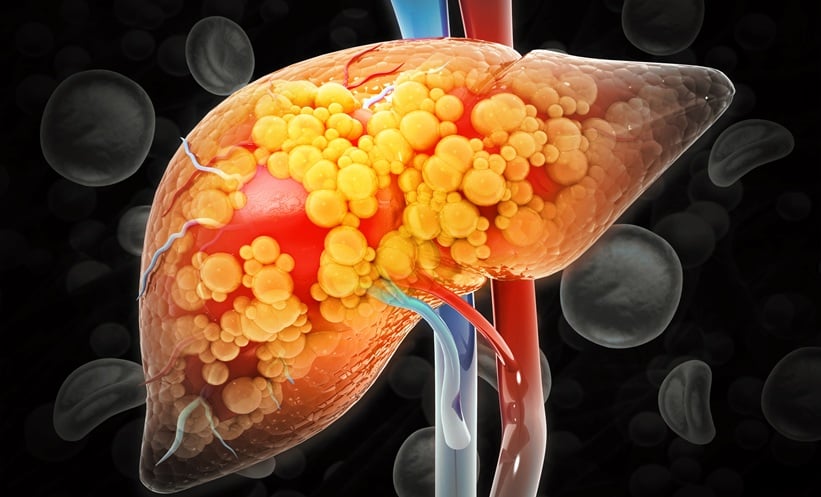A RECENT sub-analysis of the PROUD48 study has revealed that pemafibrate is more effective than omega-3 fatty acid ethyl in reducing fatty liver index (FLI) and the prevalence of metabolic dysfunction-associated steatotic liver disease (MASLD) in patients with dyslipidaemia receiving statin treatment. These findings suggest pemafibrate may be a promising agent for lowering both triglyceride levels and residual atherosclerotic cardiovascular disease (ASCVD) risk.
Statins are widely used to reduce low-density lipoprotein cholesterol (LDL-C), thereby lowering ASCVD risk. However, a considerable portion of residual risk remains, often linked to elevated triglycerides and low high-density lipoprotein cholesterol (HDL-C). The PROUD48 study compared pemafibrate and omega-3 fatty acid ethyl, two triglyceride-lowering agents, and found that pemafibrate significantly outperformed omega-3 in reducing fasting apolipoprotein B-48 (apoB-48), a marker of postprandial hypertriglyceridaemia.
This sub-study focused on MASLD, previously known as NAFLD, using FLI as a non-invasive surrogate marker. Results showed that both agents reduced FLI over 16 weeks, but the reduction was significantly greater with pemafibrate. Moreover, only pemafibrate led to a marked decrease in MASLD prevalence, offering dual benefits for cardiovascular and liver health.
Pemafibrate also showed greater improvement in liver enzymes such as ALT and γ-GTP and demonstrated a positive impact on insulin resistance, factors closely tied to MASLD. Though omega-3 fatty acid ethyl has shown benefits in past studies, especially in improving liver histology, pemafibrate’s broader metabolic effects appear more potent in this context.
While limitations such as reliance on FLI rather than histological diagnosis were noted, the findings bolster the case for pemafibrate as a superior therapeutic option. These results align with those from the PORTRAIT study and support pemafibrate’s role in managing dyslipidaemia, reducing liver fat, and potentially lowering long-term ASCVD risk.
Reference
Takeda Y et al. Comparison of the effects of pemafibrate and omega-3 fatty acid ethyl on fatty liver index in patients with dyslipidemia treated with statin: a sub-analysis from the PROUD48 study. Front Endocrinol (Lausanne). 2025;16:1549687.








